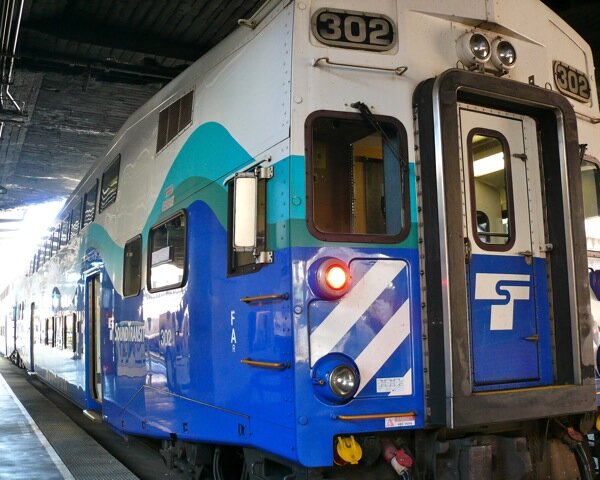When Sound Transit CEO Joni Earl presented her Proposed 2011 Budget of nearly $1.1 billion to the Sound Transit Board on Thursday afternoon, she had a sobering message: Faced with a 25-percent revenue shortfall since 2008 (amounting to $3.9 billion), Sound Transit will not be able to meet all the objectives in the planned 15-year time frame for Sound Transit 2 approved by voters in 2008.
The good news is that Sound Transit's project management toolbox no longer includes hiding under the bed and waiting for bad news to go away.
"No organization can confront an expected 25 percent reduction in revenues without asking--and answering--hard questions about priorities," Sound Transit Board Chair and Snohomish County Executive Aaron Reardon was quoted as saying in a Sound Transit release. "It is important that we address these issues now and continue to move forward with expanding the region's mass transit system as rapidly as we can."
Earl outlined a series of program realignments designed to keep Sound Transit moving forward, albeit in a trimmer, adaptable way. In a PowerPoint presentation given to the board, she broke down the projects in the ST2 15-year plan into five categories: Design & Construct, Keep Moving, Retain Only Limited Funding, Suspend, and Delete....
 An afternoon Sounder loads up at King Street Station.
An afternoon Sounder loads up at King Street Station.
The Sounder trains from Seattle to Everett and Tacoma are largely for commuters to Seattle, which is the first thing you notice when checking out their schedules (it's an hour trip for both destinations). The bulk of the runs to Seattle are in the early morning, then back to Tacoma and Everett in the evening. And of course it's weekdays only.
You only have one or two chances to make a reverse commute, depending on where you're headed, but it is possible. If you want to spend the night is Tacoma or Everett, then everything becomes easy as pie. Either way, at just $4.50 (Everett) or $4.75 (Tacoma) each way, it's a bargain, and one that you can use your new ORCA card to pay for, if you're so inclined.
If you disembark from the last train in the evening, you may hear the engine chugging away for some time. Electro-Motive Diesel, Inc., supplies the F59PHI locomotives, and tells me that the engine is usually busy recharging batteries and otherwise transitioning from its day's work. It's self-monitoring and can shut itself off when all systems are back to "green." Even idling, these are large engines and I wondered how green they really were.
Sound Transit runs 11 of the F59PHI locomotives, which emerged from the factory with an EPA Tier 0 rating. "In 2008 we switched to a low-sulfur fuel that burns much cleaner in our locomotives than the previous fuels," says ST's Kimberly Reason. "We replaced all of our Head End Power (HEP) units with a new Tier 2 unit in 2008 as well--the HEP is the smaller engine on a locomotive that provides support electricity to the coach cars for lights, heat, AC, etc."
In 2012, Sound Transit will begin rebuilding the engines to convert to the EPA's Tier 3 rating, which requires tighter regulation of oxides of nitrogen (NOx), hydrocarbons (HC), carbon monoxide (CO), particulate matter (PM) and smoke--in the case of particulates, nitrogen oxide, and hydrocarbon, the reductions range from between 50 to 75 percent compared to Tier 0.

Most Recent Comments